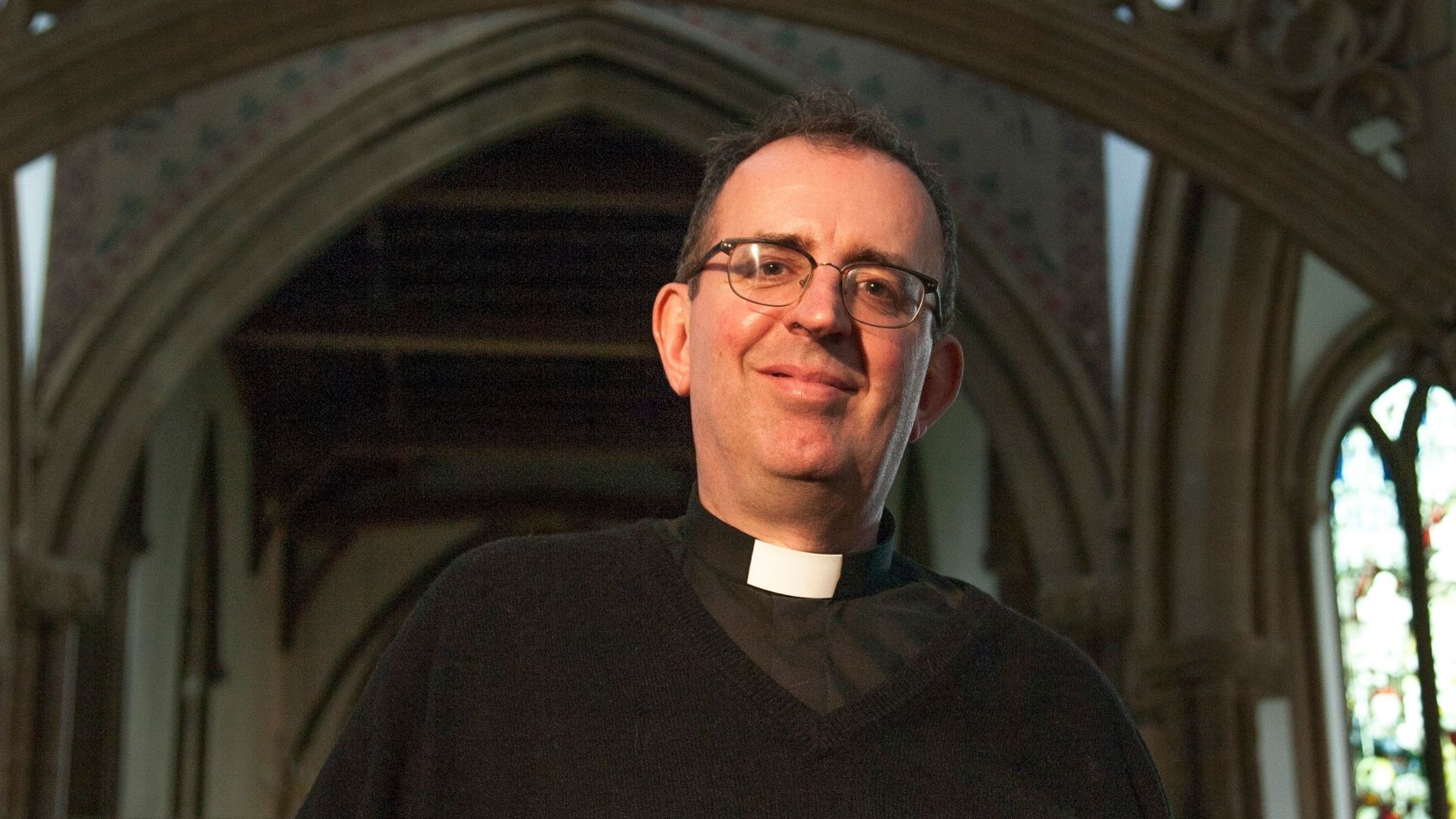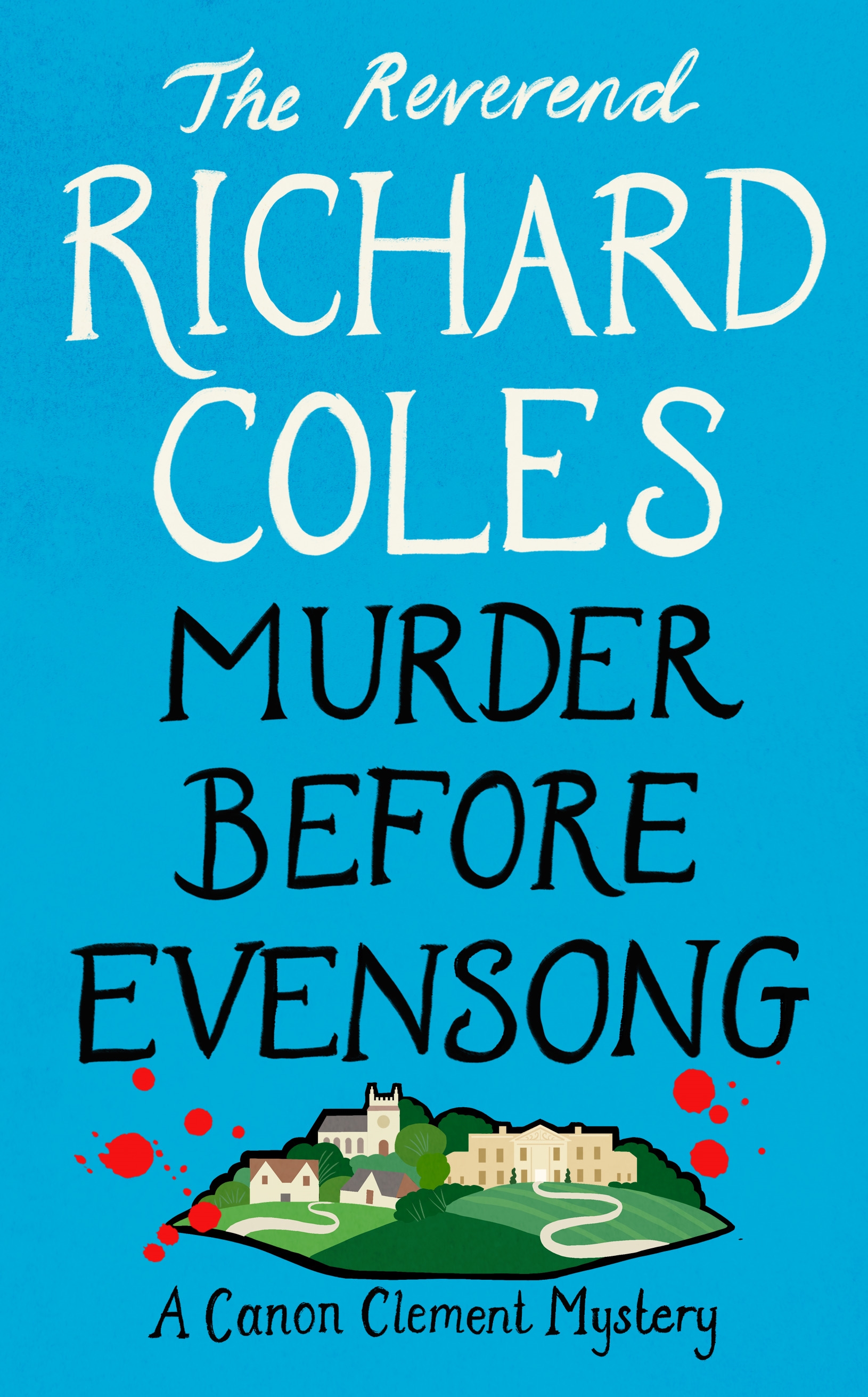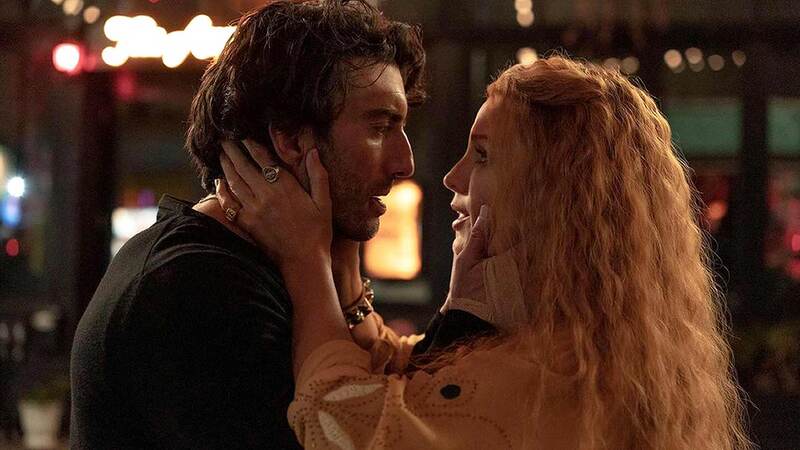You are viewing your 1 free article this month. Login to read more articles.
Reverend Richard Coles in conversation about crime and compassion
 Charlotte Eyre
Charlotte EyreCharlotte Eyre is the former children’s editor of The Bookseller magazine, and current children's books previewer. She has programmed ...more
With the release of his 1980s-set murder mystery novel on the horizon, Reverend Richard Coles talks crime, compassion and his plans for the series.

Charlotte Eyre is the former children’s editor of The Bookseller magazine, and current children's books previewer. She has programmed ...more
There is an “enormous” appetite right now for crime fiction, says the Reverend Richard Coles from his parish in Northamptonshire, where he is speaking via Zoom about the first book in his new series (and his first fiction publication), Murder Before Evensong (Orion). “It offers some kind of reassurance,” he muses. “It gives you familiarity in a world that grows unpredictably strange, and resolutions. We most often find out what happens in the end.”
Murder Before Evensong is about Canon Daniel Clement, Rector of Champton, who lives at the Rectory with his widowed mother and two dachshunds. The year is 1989, and the novel starts with Daniel telling his congregation that he wants to install a loo in the church, which doesn’t go down well with everyone. And when one of his flock is found dead at the back of the church, stabbed in the neck with a pair of secateurs, Daniel suddenly has more to solve than arguments about lavatory arrangements.
All of the characters readers would want to see in an English pastoral novel are here: the local landowner, his archivist cousin, the county councillor, the head teacher of the primary school… and of course the choir singers, flower arrangers, organist and PCC (parochial church council) members who keep the church running. In terms of influences, Coles mentions G K Chesterton and Marjorie Allingham. I saw something of Barbara Pym in there too.
We must judge as we would wish to be judged, and that is with compassion
He stresses that he is not Daniel, despite also being a vicar who owns dachshunds. “He’s much steadier than me, and he’s more heroic. He’s quietly heroic and I’m not even that. He’s also much fussier than I am.” People who know Coles might see one or two resemblances between his mother and Audrey, Daniel’s clever and opinionated mother, he says, but mostly the inspiration for his characters came from watching the community around him.
A line in the press release says: “NB: No parishioners were harmed in the writing of this novel.”
“If you are a vicar, you get used to being part of the community, and reading the community in a particular way, which is why I think vicars make good detectives,” Coles says. “We are nosy people by nature and our job is to kind of look at things, and look at people, and try to match what appears on the surface with what happens underneath.”
Vicars meet and speak to people from all parts of society (“you can spend the morning in a prison and the evening with a duke”, he quips) and are witness to problems and arguments that come with that. “One of the interesting things you see in church life all the time, especially in rural church life, is all sorts of tensions play out. At the moment, what we are seeing in rural churches are Brexit tensions playing out. We are a diverse community and we have very different views. That fascinates me. On a good day, we model how you might live together in disagreement. On a bad day, we model how you don’t live together with disagreement.”
Coles is equally good at the big stuff as well as the daily life of being part of a church community, and the squabbles the latter provokes. He is—unsurprisingly—excellent at portraying a certain kind of English churchgoer. The ladies who do the flowers are described as having become “flowery to the exclusion of everything else”, wearing “related—if not quite matching—floral-print Sunday dresses, bought at cost from Mrs Harper’s shop.”
It’s an extraordinary feat of organisation, writing fiction
His portrayal is affectionate, but not without satire, and it feels like there is a lot of compassion from Daniel and his creator for these people. The reader is left with the understanding that Daniel, like Coles, is leaving condemnation and judgement to the Lord. We see and understand why people act the way they do, and I felt almost sorry for the murderer when the denouement is revealed, because of what happened in their past. Coles says: “I’ve worked with prisoners who were coming to the end of sentences for terrible crimes. The kind of crimes for which there is no forgiveness, I think, but when you get to know people and you walk alongside people with that kind of history, you don’t have to go far back to see they were victims too before they were aggressors. Once you get that sort of picture of people it’s hard not to feel compassion… We must judge as we would wish to be judged, and that is with compassion.” Crime novels also express a reality—that life is all light and shade, he adds.
Turning point
Why set the book in the late 1980s? It was a “hinge” moment in British history, he says. There were a lot of people at that time who had been through the Second World War and were traumatised by their experience of it, and at the same time things we take for granted today, such as LGBTQ+ rights, were just beginning to happen. And in terms of the church, that period was when the old model of having one vicar in the parish as a settled and steady presence was also starting to fall away, and at the end of the book Daniel is told he needs to take on additional parishes as well as his own. That does, of course, set up book two nicely, but it also shows a system that had been in place for centuries was starting to be dismantled.
Murder Before Evensong will be published in June, just after Coles retires from his parish. His husband David died two years ago (as detailed in his 2021 memoir The Madness of Grief (W&N)) and Coles realised he needed to move away and start a new kind of life. He is moving to the South Coast, to a village “rich in potential for murder mystery”, where he will continue writing the Canon Clement Mystery series. He jokes that he might write 40 books but has so far signed up to do three, a “nice Trinitarian number”.
In the second novel, which is already written, Daniel has to oversee new parishes up the road and deal with a new arrival who comes from a different church tradition. And book three might take place on a film set, with the big house being used as a backdrop. Daniel is currently an Agatha Christie-type detective who doesn’t seem to have any interest in forming romantic attachments, but will that change? On that question Coles remains tight-lipped.
Extract
Canon Daniel Clement AKC, Rector of Champton St Mary, stood in his pulpit, looking down on his parishioners.His text was taken from the Book of Numbers, the story of the Israelitesturning against Moses for leading them not into the Promised Land but into a wilderness. A resonant story, not only for him but, he felt sure, for all 58 of his predecessors. Moses averts mutiny by striking a rock, and a cataract of water miraculously pours forth, so his thirsty and restive people may drink; a resourceful tactic that suited Daniel’s purposes too.
“Like Moses and the footsore of Israel,” he preached, “we too must learn to live in hope, to look to the future, and to find in our present circumstances the resources to meet its challenge. As Moses struck the rock of Meribah and lo, a crystal stream poured forth, we too must allow new waters to flow, or rather to flush: my dear people, we need to install a lavatory.”
In writing these books he is having a wonderful time. “I find that between 5,000 and 10,000 words it starts to write itself... It has an energy and dynamic of its own. It’s an extraordinary feat of organisation, writing fiction. I’ve got friends who are fiction writers and I marvel at their capacity to keep the architecture and the detail together in their heads. It’s been a real challenge to try and do it myself, but I have really enjoyed it.”









